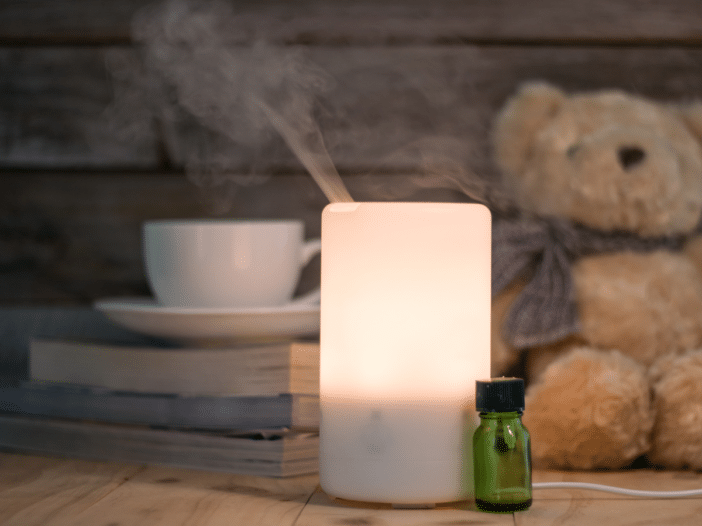
Are you wondering about the importance of using a humidifier in the winter? Look no further.
Harsh, dry winter air can wreak havoc on your health and your home. Using a humidifier throughout the cold winter months can help you maintain appropriate air quality and humidity levels, to keep you feeling comfortable and breathing well.
Read on to find out more about the importance of using a humidifier during winter, and how it enhances your health, your home, and your comfort levels!
The Benefits of Using a Humidifier in the Winter – For Your Health
In general, moisture improves air quality, especially in the winter. It’s a good idea to use a hygrometer to measure the moisture levels in your home regularly, and maintain a healthy humidity level between 30-50% all year long. Having a humidifier in the winter will restore the moisture in your air and improve air quality, helping you stay supple, healthy, and hydrated all winter long.
Dry winter air can lead to irritation in your eyes, nose, and throat. It can cause excessive dryness in your skin, trigger chapped lips, and act as a breeding ground for viruses and pathogens. Lack of humidity in the dry winter air means the moisture on your skin evaporates much quicker, easily drying it out. The dryer the air, the more your skin loses moisture to the surrounding environment through evaporation.
Not only will adding a humidifier to your home moisturize your skin, but it can also greatly reduce the presence of airborne viruses, helping you stay healthy and strong. And if you do get sick, more moisture in the air can reduce your symptoms and speed up your recovery. Having a humidifier in winter will add more moisture to your airways, helping you breathe easy and have a peaceful night’s sleep, as it lubricates your nasal passageway and throat.
The Benefits of Using a Humidifier in the Winter – For Your Home
Using a humidifier to combat dry winter air will protect the wood and furnishings in your home, and keep your houseplants happy.
If left unchecked, dry air can cause wood and furniture to dry out and crack, loosen joints, or even cause doors to change size from lack of moisture. Wood features in your home and furniture need a constant level of moisture to be at their best. With the right humidity levels, wood flooring and furniture will be safe from damage throughout the cold winter months.
Adding humidity and providing an optimal amount of moisture in the air will also allow your houseplants to thrive, without being damaged from the dry winter air.
Maximize Comfort and Minimize Costs
Studies have shown thathumidified airfeels warmer than dry air. This is because dry air doesn’t hold heat well. Adding moisture from a humidifier increases the water vapor in the air, and water evaporates from the surrounding environment, including your skin, at a much slower pace.
More humidity in the air means feeling comfy and cozy at a lower temperature, turning down the dial on your thermostat, and saving on your monthly energy bills.
What Type of Humidifier Do You Need?
If your humidity levels are close to being within the optimal range and you just need a little boost, a portable humidifier may work for you. Portable humidifiers can improve the air quality in individual rooms, but they’re not the best way to improve the overall air quality of your home.
Whole-home humidifiers are the best way to make a noticeable difference in the air quality of your home. These systems work in conjunction with your HVAC system to effectively distribute moist air throughout your living space.
If you’re looking for assistance finding the best humidifier for your, or would like to install a whole-home humidifier for optimal health and comfort this winter – call the experts at Ashton, we’d love to help!

